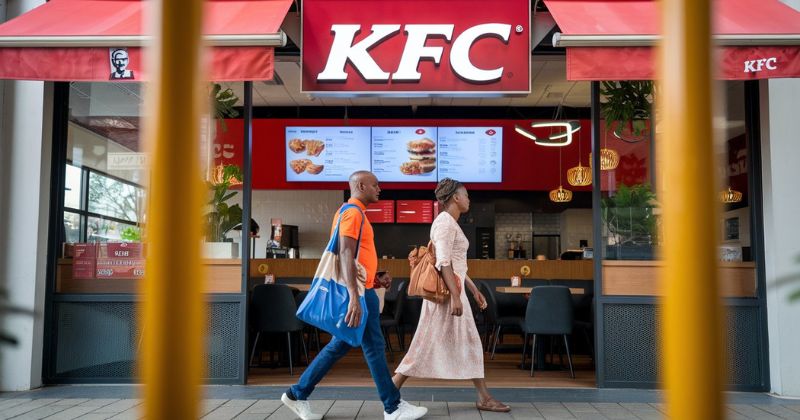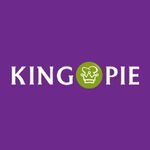
If you are considering buying a franchise, a wide range of options is available across different investment brackets. Start-up costs differ not only between franchise brands but also within the same brand, depending on factors such as outlet size and location. To prepare effectively, assess your budget and understand the full range of expenses associated with launching a franchise.
Key Takeaways
- Wide Cost Range: Franchise investments in South Africa typically range from R475 000 to over R1 million, depending on the brand, location, and setup requirements.
- Standard Fee Structure: Most franchises charge initial joining fees, monthly royalties, and marketing fees, with additional costs for services like training or product supply.
- Due Diligence Required: Buyers should evaluate their financial position, review legal documents, and consult existing franchisees to understand the day-to-day operations and support offered.
About Arcadia Finance
Get the loan you need—quickly and securely—with Arcadia Finance. Choose from 19 trusted lenders, all registered with South Africa’s National Credit Regulator. With zero application fees and a smooth, hassle-free process, we make borrowing simple and safe.
What Is a Franchise?
A franchise is a type of business arrangement where an individual or company purchases the rights to operate under an established brand name. This agreement typically includes access to the brand’s products, trademarks, and operational methods. The amount paid to obtain these rights is referred to as the franchise fee. In South Africa, the Franchise Association of South Africa (FASA) plays a key role in regulating and promoting the franchising sector across the country.
Franchising Benefits
Franchising appeals to many due to its structured and reliable approach to operating a business. Research shows that franchises are less prone to failure than independent ventures.
Franchisees often receive comprehensive support from franchisors, which typically includes an administrative system and a detailed operations manual. Further benefits include access to market insights, staff training programmes, and established supplier networks. Franchisees also benefit from continuous operational guidance and marketing support.
Franchising Risks
One of the main challenges for potential franchisees is the high initial investment, especially when considering more established or recognised brands. Other drawbacks include restricted decision-making power and reduced profit margins when compared to running an independent business.
Before diving into franchising, many entrepreneurs explore alternative financing methods. Whether it’s bank loans, venture capital, or grants, it’s worth learning how to secure funding for your startup. This guide walks you through available funding routes in South Africa and how to improve your chances of approval.

What Is a Franchise Fee?
Franchisees are required to pay fees to the franchisor in return for the right to operate under the brand and to receive ongoing support. These fees generally fall into two main categories:
Initial Fees
The initial franchise fee is a once-off payment made by the franchisee to join the franchise system and gain access to the franchisor’s intellectual property and brand. This fee is sometimes referred to as the franchise joining fee. It often covers early-stage support provided by the franchisor, such as training, introductions to financiers, and assistance with launching the business. The fee also includes the licensing rights to operate under the brand. In South Africa, these initial fees typically range between R60 000 and R250 000, though higher amounts are possible depending on the brand.
Ongoing Fees
- Royalty Fees: Also known as management service fees, royalties are paid to the franchisor for continued support. These fees may be structured as either a fixed monthly amount or as a percentage of the franchisee’s turnover. The specific structure and any possible increases are outlined in the franchise agreement.
- Marketing Fees: This fee is used to fund advertising and promotional efforts. Like royalties, marketing fees may be fixed or calculated as a percentage of sales. The Consumer Protection Act requires that these funds be kept in a separate account, and franchisors must provide regular updates on how the funds are used.
- Product Supply Margins: Franchisors often supply franchisees with goods or materials required to operate the business. They are entitled to include a margin on these products, but it must be reasonable and competitive. Both the Consumer Protection Act and the Competition Act offer specific rules on how these margins and supply standards should be handled. Franchisors may enforce product quality standards, which franchisees must follow.
- Fees for Additional Services: Franchisees might be offered optional services, such as accounting support, for an extra charge. These fees must be clearly outlined in the Disclosure Document and the Franchise Agreement. Other expenses, such as travel and accommodation for extra training, may also be charged separately or reimbursed by the franchisee.
If you’re ready to take the plunge but still wondering where to start financially, consider reviewing options for startup loans in South Africa. These loans are often tailored for new business owners—including franchise hopefuls—and come with flexible terms to help get you going.
Affordable Franchise Brands in South Africa
Franchising can be costly, but there are several low-cost franchise opportunities available locally. Below are some of the more affordable franchise brands in South Africa.

3@1 Business Centre
3@1 offers business and office-related services through over 90 stores. The locations also feature Kodak photo printing, digital prints and canvas products.
Franchisees pay a sign-on fee of R75 000, with setup costs for a kiosk at approximately R850 000. A kiosk vehicle and signage cost R260 000, and the recommended monthly working capital is R200 000. There are no ongoing management or marketing fees.

Battery Centre
Battery Centre is a well-known non-food franchise with over 130 outlets in South Africa and 160 across sub-Saharan Africa. It specialises in battery supply and services.
An initial franchise fee of R150 000 is required, with an estimated establishment cost of R500 000. Working capital of R233 495 is also recommended, bringing the total investment to R993 875 (incl. VAT).

Dream Nails
Dream Nails Beauty focuses on nail care and beauty treatments, with over 31 locations in high-traffic shopping centres across the country.
Franchisees receive a turnkey package, with setup costs around R600 000. There’s also an initial licensing fee of R100 000, and combined marketing and management fees of 6% of monthly turnover. Total costs are about R765 800 (excl. VAT, lease and working capital).

Fish & Chip Co
Fish & Chip Co is a fast food franchise focused on fish and chips, with locations across most of South Africa except the Western and Northern Cape. The brand positions itself as a leader in the fish quick service restaurant category based on customer preference, store presence and brand visibility.
It is one of the most cost-effective franchise options, requiring a minimum investment of R645 000, plus a monthly fee of R4 400. The total includes equipment, joining fee and training.

H2O International
H2O | BWT International SA supplies water-related products for homes, offices, hospitality and agriculture. The range includes purifiers, dispensers, ice machines, conditioners and filtration systems. There are over 65 franchise and stockist locations nationwide.
Setup costs range from R500 000 to R1 000 000 (excl. VAT) depending on franchise type, location and water source. The franchise fee starts at R125 000 (excl. VAT). Franchisees pay 6% of turnover as a management fee and 3% for marketing.

Just Property
Just Property operates in property rentals and management, with over 98 offices in South Africa and Namibia. New franchisees receive training, financial guidance and marketing support.
Total investment ranges from R475 000 to R1 000 000, which includes an initial fee between R75 000 and R150 000. Setup costs start at R150 000 to R350 000. Ongoing royalty and marketing fees are 6% and 2% respectively, with a training fee of R895 per month.

King Pie
King Pie is South Africa’s largest pie franchise with more than 300 locations in the country and neighbouring nations such as Namibia, Mozambique and Eswatini. Stores are typically located in high-traffic areas such as shopping centres and busy high streets.
The franchise joining fee is R60 000 (excl. VAT), with an estimated setup cost of R525 000. Franchisees are also required to pay a design fee of R13 500, royalty fee starting at R5 000, and a marketing fee of R1 500. Equipment and shop fitment are included.

PostNet
PostNet is South Africa’s largest franchise in the document and parcel sector, with over 430 stores and 1.7 million customers served monthly. It offers courier, printing, stationery and mailbox services.
To own a franchise, the franchise fee is R95 000, included in a total investment of about R805 000. At least 50% of the investment must be available in cash.

Tutor Doctor
Tutor Doctor is a global franchise providing one-on-one private tutoring in South Africa. Franchisees manage a network of tutors matched with students based on academic needs.
The franchise setup cost is R30 000, with a territory licence priced at R495 000. A working capital of R50 000 is recommended, bringing the total starting investment to around R550 000.

Zebro’s Chicken
Zebro’s Chicken offers flame-grilled chicken and chips, using a traditional braai-style preparation. The menu also features burgers, sausages and various salads.
The average setup cost is R949 900 (incl. VAT), with a joining fee of R190 000 included in the initial cost. Franchisees pay a monthly royalty fee of 4% of turnover, making it one of the more affordable options in the braai segment.

Steps to Buying a Franchise in South Africa
Franchising opportunities in South Africa come in various formats, but there is a general process most prospective buyers follow.
1. Identify a Suitable Franchise
Chasing after flashy brands can lead to disappointment. Instead, focus on franchises that align with your interests, experience, and skillset.
For example, if you’ve worked in the food sector or have a strong interest in it, then affordable food-related franchises may be a good starting point. Established names like McDonald’s or KFC might also be worth considering if your budget and experience align with their requirements.
2. Evaluate Your Financial Position
Once you’ve shortlisted a franchise, assess the financial commitment involved. Start by calculating initial costs, such as joining fees and setup expenses. Many franchisors expect you to cover 40% to 50% of the investment with unencumbered capital.
You’ll also need to account for ongoing royalty and marketing fees, particularly common in food franchises, where payments are often based on revenue. Due to the high startup costs, many investors turn to financing options such as business loans, inventory finance, or working capital loans from banks or niche lenders.

3. Open a Dialogue with the Franchisor
Contact the franchisor to gain a clear understanding of their operational model and expectations. This should include a thorough look at their disclosure document, which details fees, operational responsibilities, and the kind of support they offer. Ensure that the franchise agreement reflects these terms and includes all relevant intellectual property clauses and obligations.
4. Investigate the Franchise Offering
Before signing anything, verify the strength of the opportunity by speaking with current or former franchisees. These conversations can offer insight into day-to-day operations, potential profitability, and the kind of support you can expect.
They can also help you identify good locations. While major commercial areas like Gauteng might appear attractive, more affordable and less saturated areas could offer a better chance at long-term profitability. Analysing how the franchise competes within its industry can also inform your business strategy.
5. Finalise Legal and Financial Documentation
At this point, you’ll need to compile all necessary paperwork to move forward. This includes personal financial statements, a clear business plan, and documentation proving the source of your capital. These are required when applying for leases and signing contracts with the franchisor.
Also ensure you comply with the Consumer Protection Act. It’s highly advisable to obtain legal assistance for this stage to ensure that all documents are valid and accurate.
6. Launch and Manage the Business
With approvals in place, it’s time to begin operations following the franchisor’s systems and procedures.
Use the training and support provided to prepare your team, and implement the recommended marketing plans and workflows. Monitor performance from the outset. The early phase is critical, as it’s when you establish routines, build relationships with your first customers, and iron out any early issues.
Responding quickly to initial challenges can help set your business on a strong path and support long-term growth.
Conclusion
Buying a franchise in South Africa can offer a structured path to business ownership, especially for those looking to operate under a recognised brand with proven systems. While the costs and fees involved may be significant, affordable options are available across various industries. Thorough financial planning, careful review of the franchise agreement, and engaging with current franchisees are all essential steps before making a commitment. By doing the necessary preparation, prospective franchisees can improve their chances of long-term success in a competitive market.
Frequently Asked Questions
Startup costs generally range between R475 000 and R1 000 000, depending on the franchise brand, location, and required setup.
Yes, several low-cost franchises exist across industries like fast food, printing services, education, and beauty, with some starting below R600 000.
Expect to pay initial joining fees, ongoing royalties, marketing contributions, and sometimes additional charges for training or optional services.
Yes, many franchisees use business loans, working capital finance, or inventory funding to cover part of the investment, especially where franchisors require unencumbered capital.
Franchisors typically offer operational manuals, staff training, marketing assistance, and ongoing support, helping franchisees follow an established business model.
Fast, uncomplicated, and trustworthy loan comparisons
At Arcadia Finance, you can compare loan offers from multiple lenders with no obligation and free of charge. Get a clear overview of your options and choose the best deal for you.
Fill out our form today to easily compare interest rates from 19 banks and find the right loan for you.




